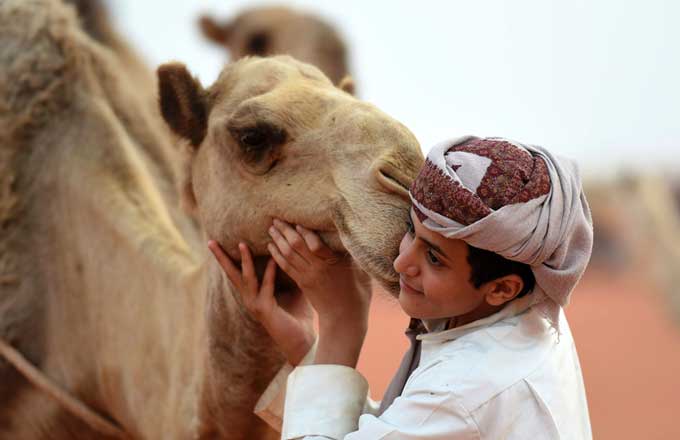Israel bombs Hezbollah-bound missiles in Syria
Israel has carried out an air strike targeting a consignment of missiles in Syria bound for Hezbollah in neighbouring Lebanon, an Israeli official said on Saturday.
The Jewish state had long made clear it is prepared to use force to prevent advanced weapons reaching Lebanon's powerful Shi'ite Muslim guerrillas from Syria. Syrian President Bashar al-Assad and Hezbollah are allied to Iran, Israel's arch-enemy.
With Assad battling a more than two-year-old Syrian insurgency, the Israelis also worry that the Sunni Islamist rebels could loot his arsenals and eventually hit the Jewish state, ending four decades of relative cross-border calm.
Lacking a side to support in its northern neighbour's civil war, and worried about inadvertently fuelling escalation, Israel has exercised restraint. Its government did not formally confirm Friday's air strike, which was disclosed to Reuters by an Israeli official who spoke on condition of anonymity.
"There was an air strike. The target was not a chemical weapons facility. It was missiles intended for Hezbollah," the official told Reuters.
US President Barack Obama said Israel has the right to guard against the transfer of advanced weapons to Hezbollah.
The attack - the second reported Israeli air strike on a target in Syria in four months - took place after Prime Minister Benjamin Netanyahu's security cabinet approved it in a secret meeting on Thursday night, a regional security source said.
A US official told Reuters the target was apparently a building. The New York Times cited unnamed American officials as saying the weapons were advanced surface-to-surface missiles from Iran and they were being stored in a warehouse at Damascus International Airport.
The Israeli air force possesses so-called "standoff" bombs that coast dozens of kilometres (miles) across ground to their targets once fired. That could, in theory, allow Israel to attack Syria from its own turf or from adjacent Lebanon.
CNN quoted unnamed US officials as saying Israel most likely conducted the strike "in the Thursday-Friday time frame" and its jets did not enter Syrian air space.
Lebanese authorities reported unusual intensive Israeli air force activity over their territory on Thursday and Friday.
Syrian government sources denied having information about a strike. Bashar Ja'afari, the Syrian ambassador to the United Nations, told Reuters: "I'm not aware of any attack right now."
CHEMICAL WEAPONS
Israel believes that Hezbollah has built up an arsenal of about 60,000 missiles and rockets. The guerrilla group fired 4,000 missiles into Israel during a 2006 war.
However, Israeli Defence Ministry strategist Amos Gilad said Hezbollah was not seeking to add any of Syria's reputed stocks of chemical weapons and Assad retained control of them.
Israel and the United States last month published findings indicating that pro-Assad forces had used chemical weapons during Syria's insurgency.
In January this year, Israel bombed a convoy in Syria, apparently hitting weapons destined for Hezbollah, according to diplomats, Syrian rebels and security sources in the region.
Israel has not formally confirmed carrying out that strike.
Lebanese acting foreign minister Adnan Mansour was critical. "Attacks such as these will result in more tension and blow up the situation which it promoted," he said.
"This will not give Israel the peace or security that it wants, in its own way, rather it will push the region into an inflamed struggle and into the unknown."
Giora Eiland, a former Israeli army general and national security adviser, said the apparent deadlock in Syria's civil war, now in its third year, meant the Netanyahu government had to be prudent in any military intervention.
"I don't anticipate far-reaching consequences in Lebanon or Syria (from Israel's actions)," Eiland told Israel Radio.
Israel captured Syria's Golan in the 1967 Middle East war, built settlements and annexed the land. Their 1974 ceasefire has largely held, despite occasional firing across the Golan. ?
But Israeli security concerns have risen since Islamist fighters linked to al-Qaeda assumed a prominent role in the insurrection against Assad.
Israel fought an inconclusive 2006 war with Hezbollah and regards the Lebanese guerrilla groups as a potent threat. Yet Gilad, the Israeli defence ministry official, saw little risk of Hezbollah seeking to outfit itself with Syrian chemical weapons.
"Chemical weapons kill those who use them," Gilad said in a speech.
- US believes Israel has conducted airstrike into Syria
- Obama does not 'foresee' US ground troops in Syria
- Syria mediator wants to quit: UN diplomats
- Most Americans do not want US involved in Syria
- No clear conclusion yet on Syria's use of chemical weapons
- Obama, Putin discuss Syria, agree to meet in Russia
- Syrian PM survives blast targeting his convoy
- Obama warns Syria chemical arms a 'game changer'


























